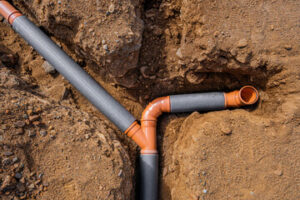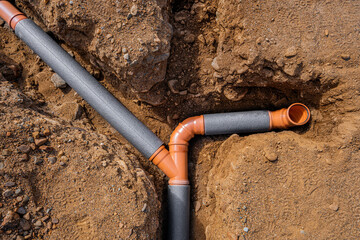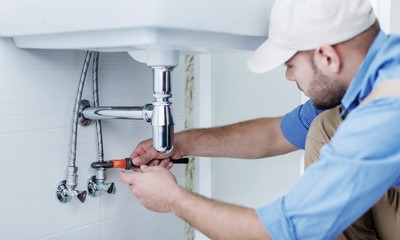Sewer installation is a complicated project that requires specialized knowledge and skills. If done incorrectly, it could lead to backed-up drains and other problems.

A sewer line starts where the home’s main drain exits the foundation and slopes downhill to a connection point called a tap. It then connects to the city branch, or main.
There are a number of materials that can be used for sewer pipes. The best material depends on the location and size of the pipe. It should be strong and durable enough to withstand the weight of water and sewage as well as external traffic and backfill material.
A good choice for large diameters is a brick sewer, which can be plastered on the outside to prevent tree roots from entering the pipe. Inside, the pipe is lined with stoneware or ceramic blocks to make it smooth and hydraulically efficient.
Vitrified clay pipes are another good choice for house connections and lateral sewers, especially for small diameters. These are made from a blend of clay and shale, which is heated to achieve vitrification, resulting in a hard, inert ceramic.
These are very durable and resistant to corrosion, abrasions, and acids from sewage. However, they are not as ductile as concrete pipes and can break under water hammer pressure.
The sand, clay, and other solid particles that are suspended in the sewer can also cause wear and tear to the pipe. This abrasion can decrease the pipe’s thickness and hydraulic efficiency, which can lead to blockages or leaks.
Cast iron is a great choice for sewage pipes because of its strength and durability. These pipes are easy to install and have a long life span.
Besides being stronger, cast iron pipes are also more corrosive-resistant than clay or steel. If you have an older sewer system that is made of cast iron, don’t be afraid to get it repaired or replaced if it needs to be.
Plastic pipe is another popular option for sewers. This material is relatively new to the industry, but it’s quickly becoming a common choice for drainage applications.
Like ABS, PVC is a plastic that ranks third among the world’s most popular synthetic polymers. It’s a hard, durable material that can be installed in a wide variety of situations.
If you’re a homeowner and have problems with your sewer or septic system, don’t be afraid to call Ashworth for assistance. They can help you determine the root cause of your drainage issues, which might be something as simple as replacing broken sewer pipes.
Sewers are the pipes that carry waste from homes and businesses to a sewer treatment facility. The location of these pipes is important for several reasons. First, they are usually located underground, which means that they minimize the likelihood of contamination in your home’s water supply. They also allow for easy access and maintenance.
Second, they are often buried deeply to avoid freezing in the winter and damage during severe weather events. This is especially helpful if you live in an area where tornadoes or hurricanes happen frequently.
Third, they’re a critical piece of infrastructure that’s incredibly sensitive to damage. If they’re broken, they can easily spill sewage into your yard and cause extensive damage to your property. Moreover, you could accidentally make contact with them while digging in your yard and get injured or worse.
To avoid these problems, it’s essential to know the exact location of your sewer line. Having this information can save you time and money in the long run.
Typically, sewer lines are buried at a certain depth to conform to code and prevent them from freezing in the winter or bursting during extreme weather conditions. Depending on the type of sewer line, these pipes can be as deep as four feet.
Another issue to keep in mind is the amount of slope needed for the sewer to function properly. A sloped environment can make it difficult to install a new sewer line and is usually something that requires grade engineering by experienced contractors.



